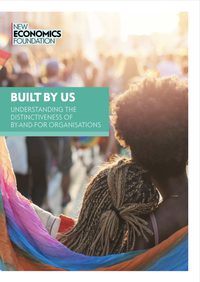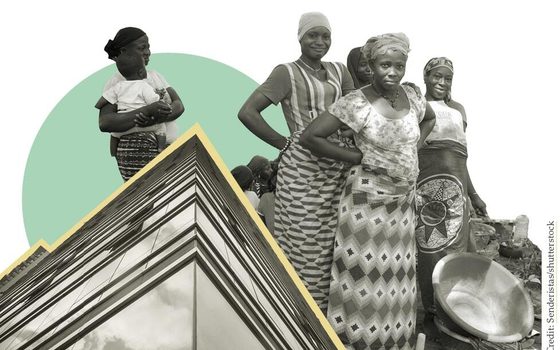Built by us
Understanding the distinctiveness of by-and-for organisations
04 September 2025
Across millennia, people have come together to take action on things that matter to them and solve the problems that are important in their communities – be they communities of interest, identity, or geography.
This involves people giving their time and other resources for the common good, in a range of forms – from setting up organisations to meet a need and establishing community-owned assets and services to organising community campaigns to build pressure on decision-makers.
In recent years, as inequality and specific forms of injustice have accelerated, the concept of “by-and-for” organisations has gained significant traction within the UK voluntary sector. This interest has also grown since the Covid-19 pandemic and the racist riots in the summer of 2024, where by-and-for organisations were able to respond quickly and effectively. These organisations, characterised by their commitment to being led by and serving specific communities, represent a unique and vital part of the landscape of civil society.
This study, commissioned by Lloyds Bank Foundation for England and Wales (LBFEW) and LEF, provides in-depth evidence about the contributions, experiences, and challenges of by-and-for organisations in England and Wales. These organisations, defined by being run by and for the communities they serve, play a vital role in addressing inequalities and providing essential support. The research focuses on improving funders’ and policymakers’ awareness and understanding of these organisations, increasing sector-wide knowledge of their characteristics, and producing recommendations for practice and policy changes to better support them.
To undertake the study, we used qualitative research methods, working with four peer researchers, including in-depth interviews and focus groups with 98 individuals deeply embedded in 86 different by-and-for organisations. The research engaged with organisations across five broad regions: London and the south-east, Wales and the south-west, Greater Manchester and the north-west, Sheffield and South Yorkshire, and Birmingham. The project also benefited from the stewardship of a Research Advisory Group involved in commissioning the work and guiding the research at critical stages.
Key research questions explored the definition of by-and-for organisations, their distinct qualities and value, and the challenges they face. The study developed a working typology based on principles such as genuine representation of marginalised communities, a commitment to structural change, and tangible evidence of meaningful engagement. We identified funding as a significant challenge, with organisations facing issues related to access, conditions, and sustainability. The research highlights the vitality of these organisations, their organic formation, their community-oriented approaches, and the centrality of lived experience.
Image: iStock







